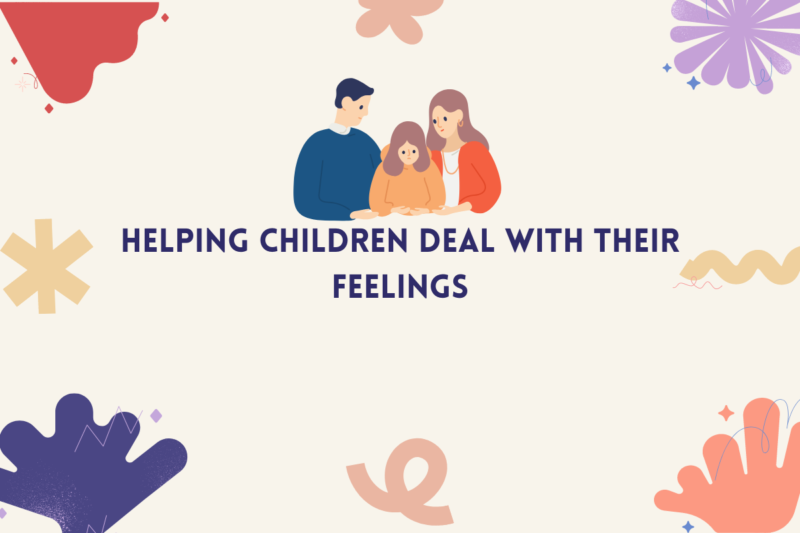Helping children understand and manage their emotions is a crucial aspect of their overall development. As children grow, they will face a range of emotions, some positive and others negative, and it’s important that they learn how to deal with them in a healthy and productive way. Here are some tips to help children deal with their feelings:
- Encourage Emotional Expression: Children need to know that it’s okay to feel what they’re feeling and that it’s important to express those emotions. Encourage them to express their feelings through talking, drawing, writing, or any other form of self-expression. This will help them release their emotions and feel heard and understood.
- Validate Their Feelings: Children need to know that their emotions are valid and important, even if they don’t make sense to others. Validate their emotions by acknowledging what they are feeling and telling them that it’s okay to feel that way. This will help them feel heard and understood, and reduce the likelihood that they will internalize their emotions and cause harm to themselves.
- Empathy: Show empathy to children by putting yourself in their shoes and trying to understand what they might be going through. This will help them feel supported and validated, and it will also help you understand their perspective.
- Problem-Solving: When children are facing challenges, help them come up with solutions to the problem. Encourage them to think about different ways to handle their feelings and help them find a solution that works for them. This will help them build resilience and develop problem-solving skills that will serve them well throughout their lives.
- Teach Coping Skills: Teach children coping skills, such as deep breathing, counting to ten, or visualization, to help them manage their emotions in a healthy way. These skills will help them reduce stress and anxiety, and will also help them manage their emotions more effectively.
- Create a Supportive Environment: Children need to feel surrounded by positive and supportive people in order to thrive. Create a safe, nurturing environment where they feel comfortable expressing themselves and seeking help when they need it. This will help them feel secure and valued, and will also encourage them to be open about their feelings.
- Be Patient: Remember that children may take some time to process their feelings, so be patient and allow them the space they need to work through their emotions. Don’t pressure them or rush them, and be there to support them when they’re ready to talk.
In conclusion, helping children deal with their feelings is an important aspect of their development. Encourage emotional expression, validate their feelings, show empathy, help them problem-solve, teach coping skills, create a supportive environment, and be patient. By doing these things, you can help children develop healthy emotional regulation skills that will serve them well throughout their lives.


